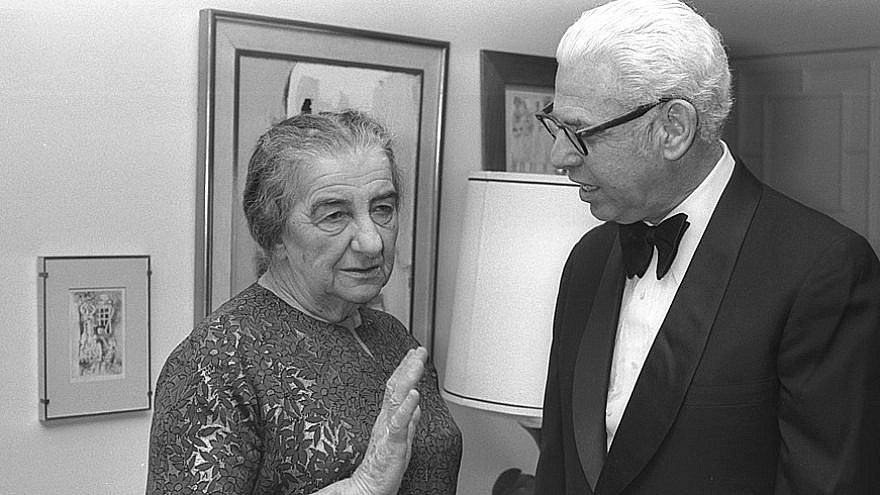In many ways, the life of Arthur Goldberg exemplifies central pillars of the American Jewish experience. Born in Chicago in 1908 to poor Jewish immigrants from Russia, Goldberg graduated at the top of his class at Northwestern University Law School, soon becoming a prominent labor attorney. He was a central figure in shaping the post-war labor agreement landscape, and was a staunch advocate for free speech and workers’ freedom of assembly.
A strong supporter of Democratic presidential candidate John F. Kennedy, Goldberg was appointed by the president in 1961 to serve on his cabinet as the Secretary of Labor. Less than two years later, with the retirement of Justice Felix Frankfurter, Kennedy appointed Goldberg to the “Jewish seat” of the U.S. Supreme Court. However, this position was also short-lived.
In 1965, President Lyndon B. Johnson persuaded Goldberg to take over the position of U.S. Ambassador to the United Nations. Goldberg’s Supreme Court seat subsequently passed to another Jew, Abe Fortas. Thus, at the age of 57, Goldberg found himself serving as representative of the United States on the world stage, having already served on a president’s cabinet, as well as in the nation’s highest court. At the United Nations, Goldberg would play a critical role in the history of the State of Israel.
An outspoken Zionist, he served as ambassador during a tense time in the history of the U.S.-Israel relationship: during the 1967 Six-Day War. At the height of the war, when peace looked impossible, Goldberg negotiated a successful cease-fire between Israel and its Arab neighbors.
Then, in November 1967, a few months after the war, Goldberg co-drafted the groundbreaking Resolution 242—a document that has been the cornerstone of the Israeli-Arab peace process ever since. It outlined the dual principles of Israel’s need to withdraw from territory gained during the war along with the need for Arab recognition of Israel’s sovereignty and right to live in peace. Understanding the Israeli position that pre-1967 borders were indefensible—or as Israeli statesman Abba Eban called them, “Auschwitz borders”—Goldberg left ambiguity as to which and how much territory Israel must vacate in exchange for peace.
According to Arthur Goldberg, this ambiguity was intentional and represents the United States’ position that prioritized Israel’s right to a secure border, which may preclude withdrawing from all territories gained during the war.
In cementing this position in the resolution, Goldberg helped establish a status quo of American support for Israeli security that has continued for decades.


























